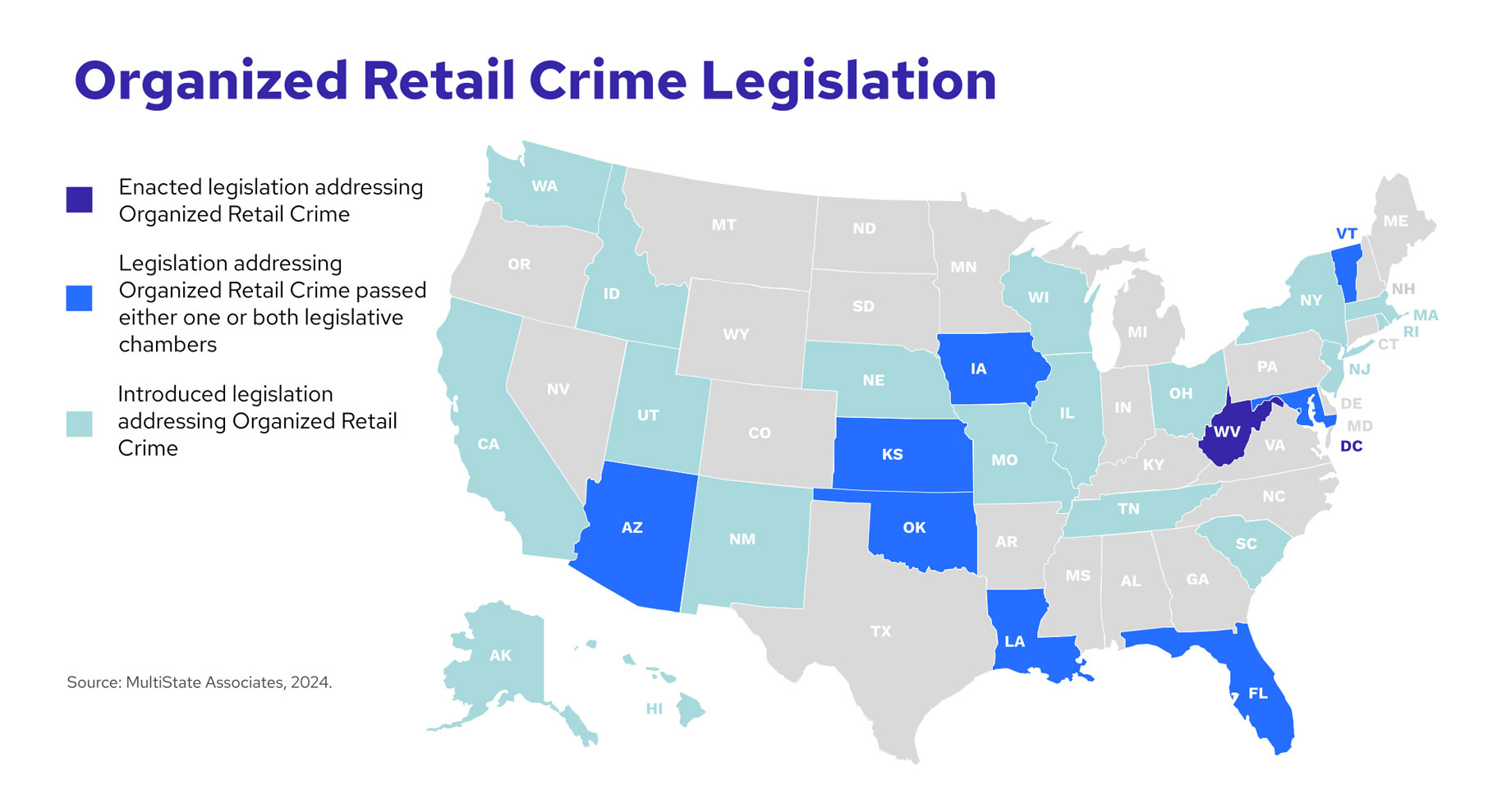Earlier this month, lawmakers in Washington, D.C. enacted the first major bill targeting organized retail crime of 2024 as Mayor Muriel Bowser (D) signed the “Secure D.C. Omnibus Amendment Act of 2024” (DC B 735) into law. The bill, backed by the City Council, contains a key provision that establishes the crime of organized retail theft as any act where two or more people coordinate to steal more than $1,000 over a 90-day period with the intent to sell.
Across state legislatures, a number of bills addressing organized retail crime are quickly picking up steam. Earlier this week, West Virginia Governor Jim Justice (R) signed a bill (WV HB 4998) that would make a third conviction of shoplifting a felony and punishable up to ten years in prison, while the Arizona House also passed legislation (AZ HB 2435) aimed at increasing penalties for repeat theft offenders.
Proposals allowing the total value of stolen goods to be aggregated continue to be popular solutions for state lawmakers. Three states have introduced bills that would allow for thefts to be aggregated up to one year, whereas most proposals typically draw the line at 90 days. Lawmakers in Florida (FL HB 549) and Kansas (KS HB 2144) both passed legislation through both chambers that would allow thefts to be aggregated over a 12-month period. Similar legislation introduced in Oklahoma (OK SB 1450) also cleared its chamber of origin.
Elsewhere, lawmakers in Iowa have sent legislation (IA HF 2594) to Governor Kim Reynolds’ (R) desk that would establish the act of committing multiple thefts over a six-month period as organized retail theft. And in Maryland, a bill (MD SB 100) establishing the crime of organized retail crime won unanimous approval from the state’s upper chamber. The Maryland House will likely act on the bill in the coming week as the state prepares to adjourn on April 8.
There are many proposals addressing ORC still left to be considered in states as more legislatures wrap up sessions. In total, lawmakers in 28 states have introduced 70 bills that would broadly toughen penalties for thieves involved in organized retail theft operations. California lawmakers have introduced 11 bills alone on the subject as lawmakers square off with retailers and district attorneys who are supporting a ballot measure to amend Proposition 47, a 2014 ballot measure that largely decriminalized thefts under $950.
